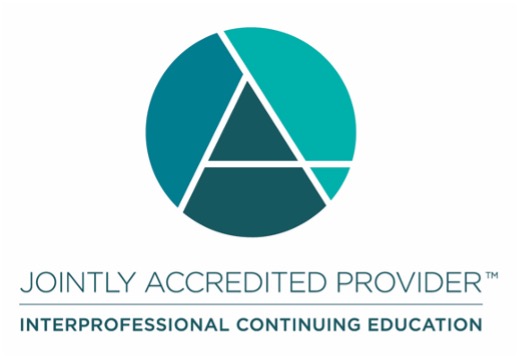Medical Nutrition Therapy for Diabetes Mellitus, Ninth Edition
Diabetes and prediabetes are serious chronic diseases affecting over 133 million Americans or approximately 43% of the U.S. population, but, unfortunately, more than 23% of people with diabetes are undiagnosed and 38% of U.S. adults have prediabetes with only a third aware of it (Centers for Disease Control and Prevention, 2021). It is costly in both economic terms and its impact on an individual’s quality of life. Clinical trials and outcomes research report that diabetes medical nutrition therapy (MNT) provided by Registered Dietitian Nutritionists (RDNs) and delivered using a variety of nutrition interventions and multiple encounters is effective in improving glycemia and other metabolic outcomes.
However, for RDNs to be effective clinicians and educators requires not only knowledge and skills in diabetes nutrition therapy, but also in the overall management of diabetes and in effective diabetes education and counseling. By developing these competencies, MNT can be integrated effectively into diabetes management. This allows the person with diabetes flexibility in lifestyle and improved quality of life while still achieving and maintaining metabolic goals. The goal of this continuing education program is to provide the information and skills needed by dietetic/nutrition professionals to develop these competencies.
This continuing education activity is designed to help you earn 20.0 continuing education credits for dietetics (CDR CPEU).
Learning Objectives
After completing this activity, nutrition professionals will better be able to:
- Recognize types of dysglycemia, screening recommendations, and diagnostic criteria.
- Identify symptoms and discuss etiologies of the different classifications of diabetes.
- Implement lifestyle interventions with research support for the prevention of diabetes.
- Identity available therapy options for obesity management including anti-obesity medications and metabolic/bariatric surgery and the role of the RDN in helping individuals make informed decisions regarding an optimal care plan.
- Implement the Academy of Nutrition and Dietetics Nutrition Practice Guideline (Academy NPG) for the Prevention of Type 2 Diabetes (T2D).
- Evaluate the role of technology in MNT, person-centered care, and behavior change.
- Recognize how the diabetes-focused dietitian/diabetes care and education specialist can be a leader/expert consultant in health care in optimizing diabetes care in evolving payment and care models.
Additional Information
Janice MacLeod, MA, RDN, LDN, CDE, is a diabetes-cardiometabolic consultant and key opinion leader in digital health and chronic condition management. Janice began her career as a diabetes dietitian and certified diabetes care and education specialist at Carilion Health System in Roanoke, VA and later at the University of Maryland in Baltimore, MD.
Currently, Janice is partnering with the Apostle Group, a CMS Care Transformation organization, developing an evidence strategy for their Food as Medicine research. Janice previously led clinical advocacy at Medtronic/Companion Medical and has served in clinical leadership roles with Welldoc, a pioneer digital health company and Johnson and Johnson, including as senior diabetes medical science liaison. She is a recent past chair of the Academy of Nutrition & Dietetics (Academy) Diabetes Practice Group and has been elected to the Association of Diabetes Care and Education Specialists Board of Directors, 2024-2027. She has served on the American Diabetes Association (ADA) Scientific Sessions planning committees and was a co-author of the ADA Diabetes Nutrition Consensus Report as well as the Academy Nutrition Practice Guideline for Type 1 and Type 2 Diabetes.
Janice has authored multiple publications and developed numerous presentations and continuing education programs on diabetes nutrition, digital health, and practice transformation. Her passion is developing business-savvy solutions leveraging technology to transform care.
Disclosures:
Janice MacLeod, faculty for this activity, has no relevant financial relationship(s) with ineligible companies to disclose.
The planners for this educational activity have no relevant financial relationship(s) with ineligible companies to disclose.
An “ineligible company” includes any entity whose primary business is producing, marketing, selling, re-selling, or distributing healthcare products used by or on patients.
 In support of improving patient care, Great Valley Publishing Company (publisher of Wolf Rinke Associates) is jointly accredited by the Accreditation Council for Continuing Medical Education (ACCME), the Accreditation Council for Pharmacy Education (ACPE), and the American Nurses Credentialing Center (ANCC), to provide continuing education for the healthcare team.
In support of improving patient care, Great Valley Publishing Company (publisher of Wolf Rinke Associates) is jointly accredited by the Accreditation Council for Continuing Medical Education (ACCME), the Accreditation Council for Pharmacy Education (ACPE), and the American Nurses Credentialing Center (ANCC), to provide continuing education for the healthcare team.
This activity will also award credit for dietetics (CDR CPEU).
RDs and DTRs are to select activity type 102 in their Activity Log. Sphere and Competency selection is at the learner’s discretion.
Available Credit
- 20.00 CDR

 Facebook
Facebook X
X LinkedIn
LinkedIn Forward
Forward